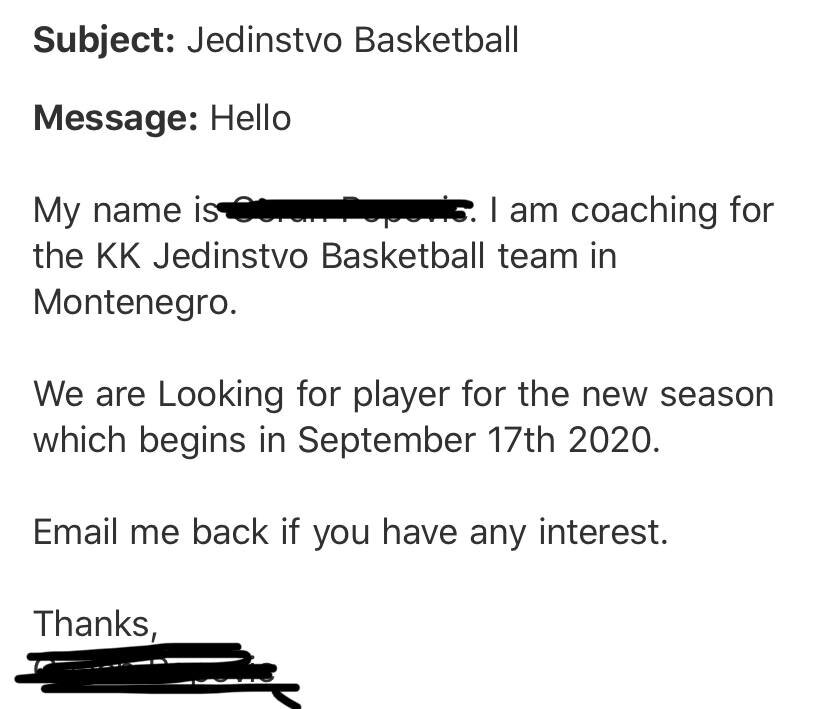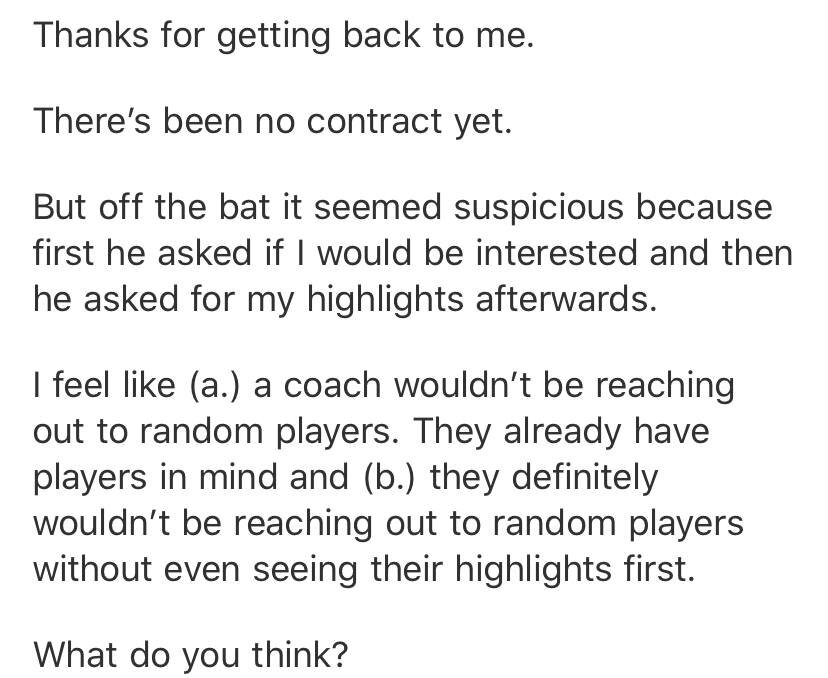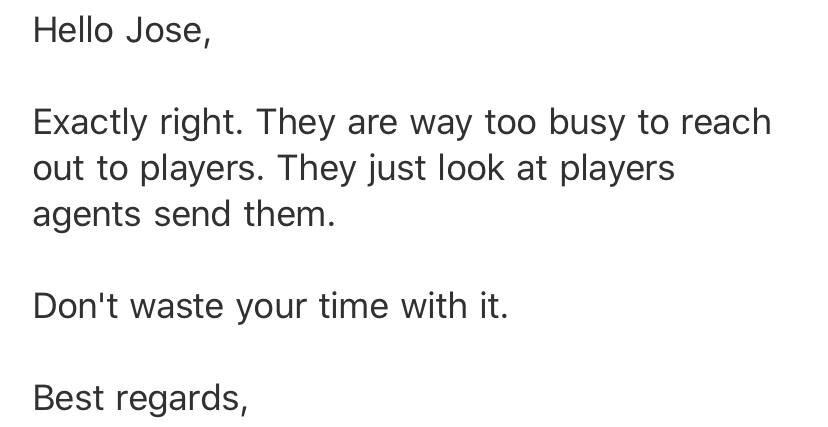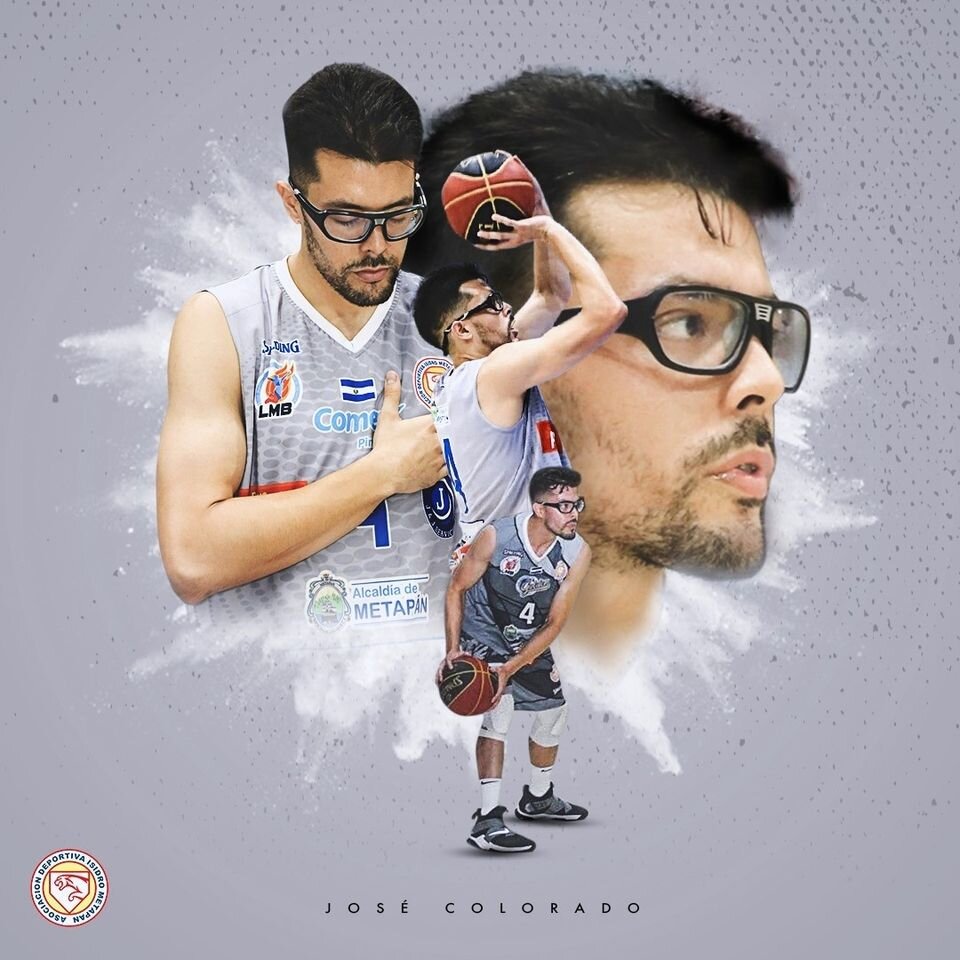Overseas Basketball Scams: 5 Clear Signs You’re Getting Scammed in Pro Basketball (Real Life Examples) [2020]
It’s midnight.
Your eyes are strained, brain scrambled, and your enthusiasm has begun to fade.
You’ve sent your resume, highlight video, and stats to hundreds of professional clubs, agents, coaches and managers across the globe.
Still, no replies.
With COVID-19 complicating the global basketball market even further, many players have been left scrambling this year.
As if that’s not bad enough.
Scammers know this.
In fact:
In just a few weeks of posting this article, Google has already ranked us No.1 with such a high demand of players looking for answers on basketball scams across the globe.
Coincidentally, I recently came in contact with a scam artist trying to get the best of me, so I played along so I could refresh myself of the process.
Read on so that you can learn how not to fall victim like hundreds of other players.
SECTIONS:
Basketball coaches and teams contacting you first
Here’s the deal:
Teams’ inboxes are constantly being flooded with:
Messages
Videos
Stats
…and much more.
Considering this, all prospective players should be very cautious of any club, coach or manager who reaches out first.
Typically, if an organization wants to get in touch with you they would go through:
An agent (either yours or another)
A trusted connection (such as a former coach, scout etc. you played for)
A pro basketball academy director
There is simply too many players out there for clubs to be short of options when it comes time to selecting its roster.
But perhaps more importantly, teams are looking for a legitimate and trusted voice to reference them dependable athletes.
Agents, connected coaches or distinguished basketball personalities provide this.
Of course, there are some exceptions.
The most noticeable instance would be if a team from the same region - but not necessarily the same country you played in - reached out to you.
For example:
Because the vast majority of my professional career has been spent in El Salvador, it’s much more likely another club in Central America would have:
Heard of my name through word of mouth/media outlets/players etc.
Watched leagues games
Be interested
Connect and reach out
Indeed, this is a much more likely scenario especially when considering most regions in the world retain a somewhat similar level of competition and style of play to its surrounding environment (e.g. Europe as a whole is more team-oriented, Central America is more individualistic etc.)
However it is much more unlikely a random country will start a conversation with you when you have zero experience or connections to that region.
This was the first red flag that jumped out to me when a “coach” contacted me from Montenegro.
2. How do you know if overseas teams are real?
Yes, KK Jedinstvo is a professional club that actually exists.
And yes, it is located in Montenegro.
But that doesn’t make that email legitimate.
Players must first conduct a careful evaluation process of whoever is messaging them by researching:
Head coach/coaching staff members
Team roster
Former players
Club history
League
YouTube highlights (proof of physical existence)
EuroBasket is an excellent starting point as it contains the most comprehensive and extensive database when it comes to overseas basketball.
But don’t stop there.
Ask:
How they heard of you?
Where they discovered you?
How you fit into their plans?
Search YouTube highlights and critically observe the level of competition.
Could you legitimately compete at that level?
If you’re a recent NAIA graduate and a team from the ACB - the best league outside the NBA - is messaging you out of nowhere to be one of their imports, the answer is pretty obvious as to the likelihood of its legitimacy.
Unfortunately, I’ve seen countless players let this second red flag fly right by them.
You can’t be blinded by your pride (“I can play at any level”) and passion for the game.
Just because something exists doesn’t mean it is real for you.
3. Who should I contact to find out if a basketball scam is real or not?
If the club has cleared the “reality check” portion of the process, then the next step is to gain some insider information from those connected to the region.
This can be challenging for players who aren’t globally connected in the basketball community. That is why it’s so important to consistently maintain - and grow - your relationships in all regions of the world.
Luckily in my case, I recently connected with a Montenegrin agent who knew the market inside-out and he confirmed (via voice note) that this was definitely a scam.
However to double-check I also sought out the advice of a fellow player who I noticed was a mutual friend of the impostor on social media, as well as another contact who is a distinguished voice in the European region to evaluate legitimacy.
The more voices, the better.
In my instance, it was obvious by the end - it was a clear hoax.
4. Do Basketball Agents Get Paid Up Front Fees?
If you are still having concerns about what to believe, then the absolute nail in the coffin is when an upfront fee is required.
Don’t pay it, ever.
Remember, you are the asset in this situation and they reached out to you.
It makes very little sense that you - as the desired commodity - should be required to pay any expense to complete the transaction (i.e. the contract).
Usually the reasoning will be coded in language such as a:
Visa processing fee
Work permit
Player insurance
Team medical coverage
They will tell you they’ll pay you back when you arrive at the airport.
They won’t.
They’ll take your money and move onto the next sucker in line.
You won’t hear from them again.
5. Are Basketball exposure camps, tours and combines also scams?
Up to this point, we’ve been sniffing out a scam from purely a player - team perspective however these scumbags are lurking in other corners as well.
Combines, player representation contracts, tours and tryouts are some of the biggest money grabs out there but these are much more difficult to differentiate.
It isn’t always as black and white as a scam or legit in these cases.
For instance:
Almost all combines and tours require an upfront fee prior to participation but that doesn’t make them fraudulent.
In fact, it’s pretty obvious that organizers will need to recoup some cost for their time and effort (i.e. the gym rental, referees, fellow workers and much more).
But where one could be tricked is when promises of contracts are being made for simply attending the combine or that “X amount of coaches will be in attendance.”
If “many” NBA G-League coaches are being promised but only four attend then an argument could be made on the organizers’ behalf that having four NBA G-League coaches in one event is actually a difficult task.
And because of that, the spirit of the advertisement was upheld.
In other words:
There is some room for interpretation in many of these events.
In that sense, this subsection of opportunities can be viewed on a spectrum rather than simply scam or legit.
In any case, when traveling through the world of professional basketball it’s critical all players remain alert and remain on their toes at all times to these give-away signs of overseas basketball scams.
5-step evaluation process to identify overseas basketball scams:
Understand who is contacting who and what that means.
Does the basketball team/agent/coach exist? More importantly, are they real?
Double- and triple-check with others who have connections to that region.
Are they asking for an upfront (agent) fee?
Understand scammers come in all different forms and sizes
If you found this guide helpful make sure to share with your friends and family.
What are your experiences with scammers?
Comment below and let me know!
Jose Colorado is a five-year professional basketball player helping others achieve their goals of pro basketball through a proven, research-based approach.
READ MORE



